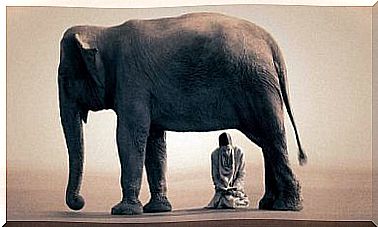The Effects Of Lack Of Sleep According To Science

It is estimated that we spend a third of our lives sleeping. That proportion of time can only mean that sleep is critical to our well-being. Thus, when there is lack of sleep, the consequences usually do not take long to appear. If this lack of sleep also continues over time, its physical and psychological effects can become really difficult to reverse.
Although more research is still needed on its functions, there is already evidence that relates sleep to thermal, metabolic, endocrine, synaptic and immune regulation, as well as energy and cognitive restoration. Therefore, altering the natural rhythms of sleep implies effects in all the above aspects.
Here are some of the main effects of poor sleep on diet, immune system, cognition, and mood.

Effects on diet
Circadian rhythms regulate sleep-wake and eating-fasting patterns by releasing certain substances. When there is sleep deprivation, there are alterations in these rhythms, deregulating the system and, with it, the production patterns of certain hormones.
Specifically, lack of sleep causes more ghrelin and less leptin to be secreted. Ghrelin is a hormone that stimulates hunger and leptin reduces it.
Therefore, not getting enough sleep is associated with an increased appetite and, consequently, with being overweight or obese. A meta-analysis that analyzes 30 research studies has found a greater presence of obesity in adults who usually sleep a few hours. Also, this relationship is even higher in children.
In addition, possibly to compensate for fatigue and low energy, food intake after little sleep is more due to anxiety, causing them to choose foods higher in carbohydrates and fat, and a greater quantity.
Effects on the immune system
The immune system is responsible for defending and restoring the body after a threat or damage. It makes sense then that, as an evolutionary result, the immune system reorganizes itself during the night, as this is when there is less likelihood of an assault. Thus, many immune cells peak at the beginning of the night or sleep period. For example, lymphocytes or platelets.
Other regulatory hormones of the immune system also vary with the sleep-wake cycle, such as prostaglandins or growth hormones, which increase, or cortisol, acetylcholine, and thyroids, which decrease. Melatonin, in addition to regulating sleep, has a great responsibility in phagocytosis processes. That is, in capturing and digesting harmful particles.
Taking this into account, lack of sleep causes alterations in the response that our body gives to diseases or natural processes. Therefore, not sleeping properly is related to a greater number of infections and even to the development of diabetes, since insulin sensitivity is lost.
Effects on cognition
Due to tiredness, bad mood and stress from not sleeping, our attention, our ability to memorize or our decision making is affected. However, lack of sleep itself also has a direct effect on our cognitive abilities.
Apparently, our ability to alert and watch, related to care, is the main affected. Generally, our reaction time increases and our ability to respond to stimuli is blocked (what they call micro-lapses). Some authors have suggested that these moments of “pause” correspond to small naps that the brain takes to rest from continuous wakefulness.
Memory and learning have also been widely related to sleep. On the one hand, getting a good night’s sleep and a sufficient number of hours is essential to keep the brain in good condition to receive any learning. On the other hand, there is more and more evidence that new learning is consolidated during sleep and information is integrated.
In general, sleep deprivation is also related to inappropriate activation of the default neural network, which is responsible for keeping the brain active at rest.
Thus, this alteration in the network would imply a failure when distributing resources in the brain areas according to the needs of the person. Therefore, lack of sleep is also associated with lower performance in working memory, inhibitory control, and cognitive flexibility, among others.

Effects on mood
It’s no surprise that lack of sleep makes us more irritable and in a worse mood. From science, researchers have found that participants who slept an average of 4 and a half hours reported feeling stressed, sad and angry.
Although it is not known with certainty why sleep affects mood, a recent study has found what could be the key, the PER3 gene. This gene is also related to circadian rhythms, and the altered gene was found to generate depressive behavior. On the other hand, alterations and fewer slow waves in sleep are related to depression.
In more serious cases of sleep deprivation, once it becomes chronic and / or a sleep disorder develops, it is common for mood or anxiety disorders to occur at the same time. This, in addition to affecting physical and mental health, makes it more difficult, if possible, to restore sleep patterns and regain optimal rhythm.









